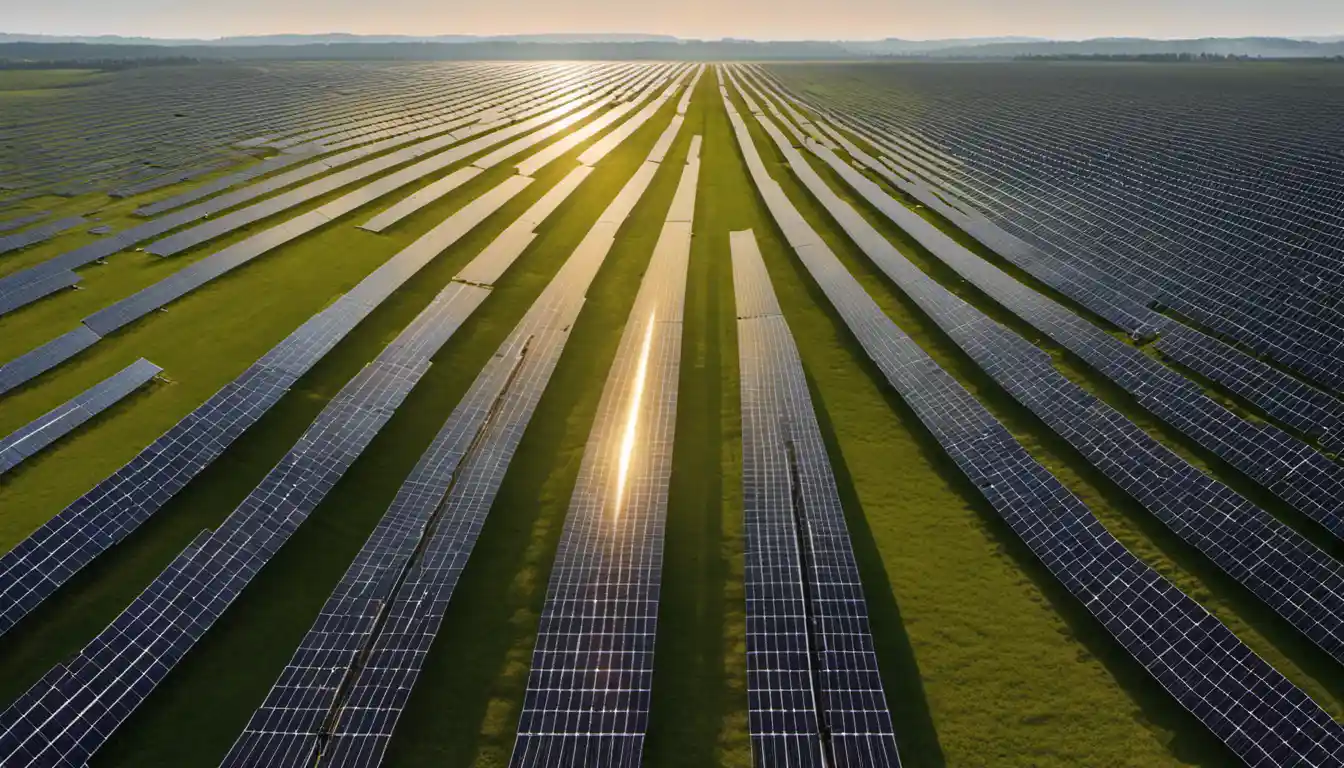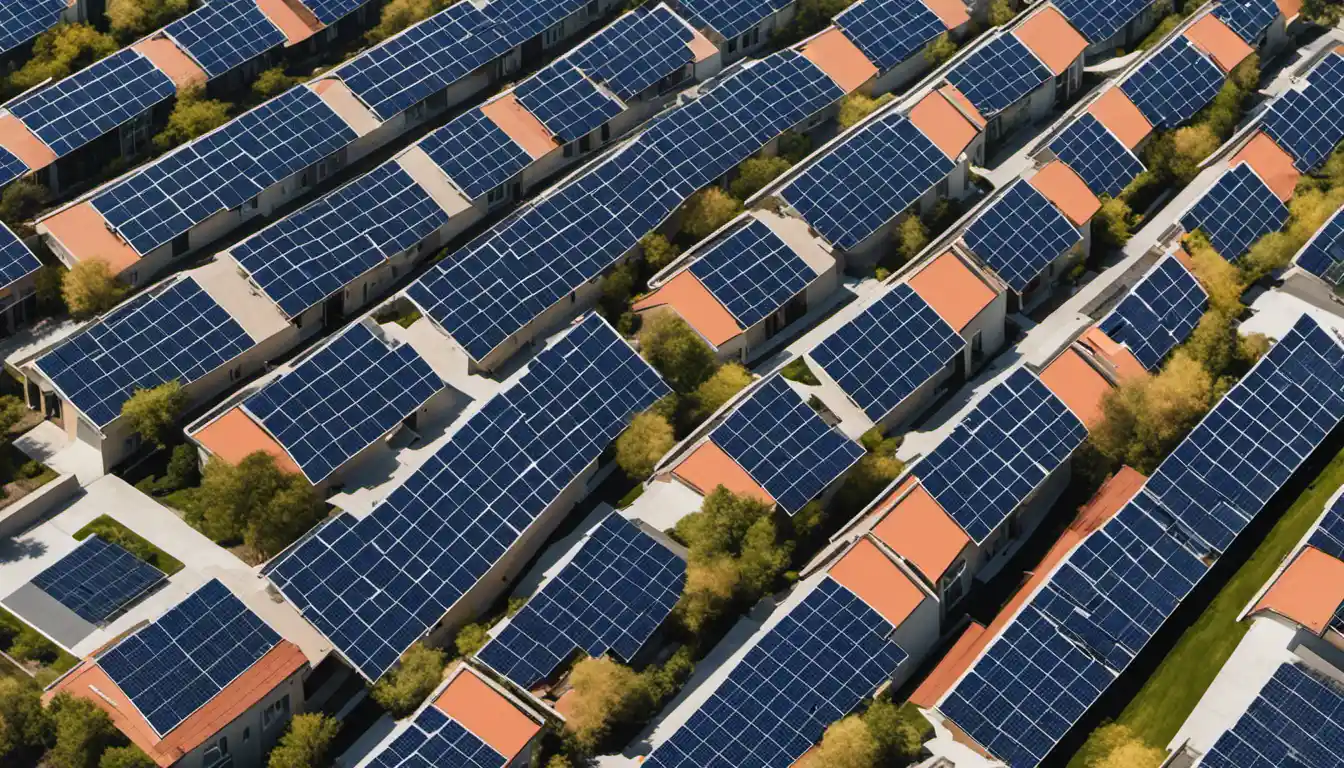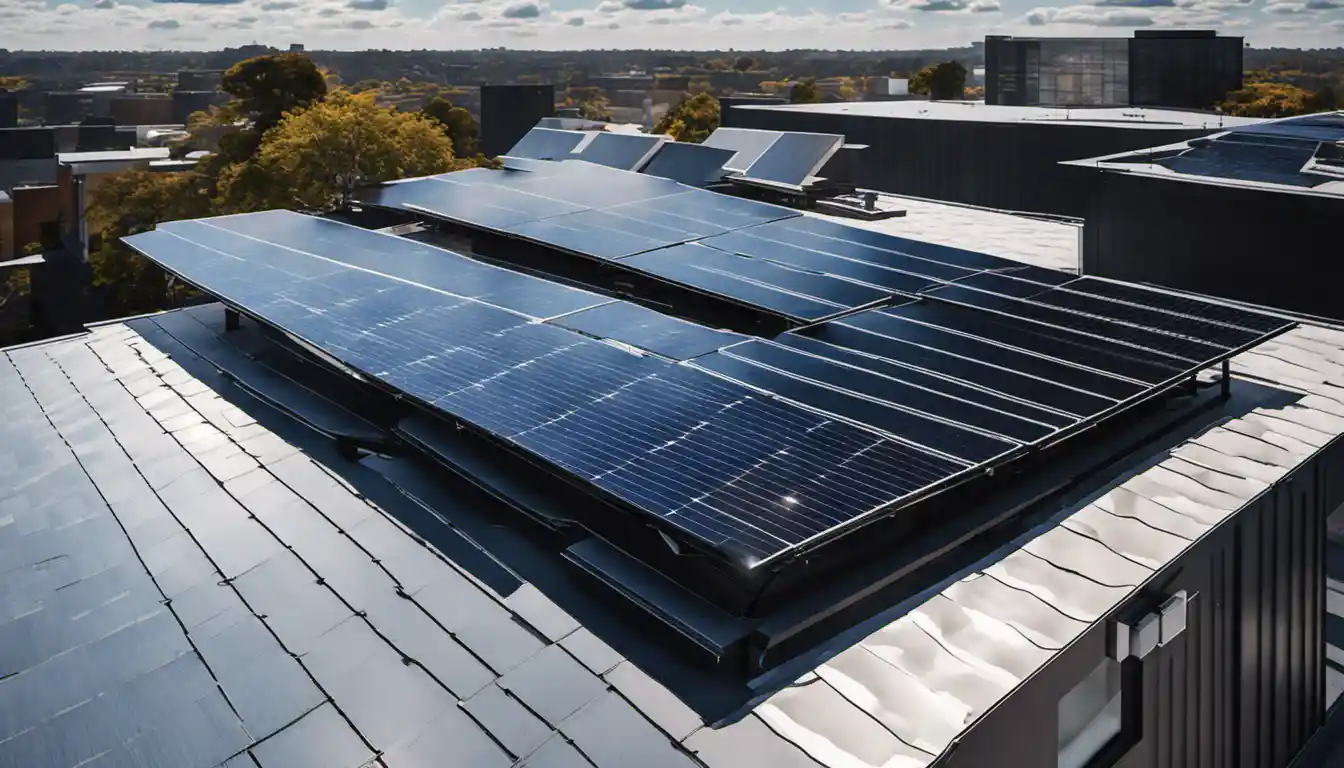Ground Mounts vs. Roof Mounts: An Overview
Ground mounted solar panels and roof solar panels both harness sunlight for energy but have different advantages. Ground mounted panels can be placed and angled for maximum sun exposure, are easier to clean and maintain, but can take up considerable space. Roof solar panels are more commonly used due to space efficiency and they have minimal impact on a home’s aesthetic, but their position and angle depend on the roof itself, they can be harder to maintain, and their installation process can be more complicated.
Detailed Comparison: Ground Mounted vs Roof Mounted Solar Panels
Now that we’ve set the stage, let’s delve into a detailed comparison of ground mounted solar panels versus roof solar panels, looking at the pros and cons of each.
Pros of Ground Mounted Solar Panels
Ground mounted solar panels offer increased efficiency because they are positioned directly toward the sun at the perfect angle. This can result in significant savings on your energy bills. These panels are also easier to maintain because they are more accessible for cleaning or repair.
Cons of Ground Mounted Solar Panels
The ground mount, however, can take up considerable yard space which isn’t always ideal for homeowners with smaller properties. It will also require the health and versatility of the soil to maintain an optimal angle. They may also take longer to install due to the requirement for additional groundwork.
Pros of Roof Mounted Solar Panels
Roof mounted solar panels, on the other hand, are space-efficient and tend to be more popular with suburban homeowners because they utilize already existing space: your roof. They’re out-of-the-way, have a less intrusive aesthetic and the cost is generally lower than ground-mounted panels.
Cons of Roof Mounted Solar Panels
However, their efficiency is limited by the orientation and pitch of your roof. Also, charm won’t come to the rescue when you need to clean or maintain your panels – this can be more challenging due to their elevated and sometimes steep position. Furthermore, installing roof-mounted panels can sometimes require reinforcement of the existing roof structure, which can add additional expense and hassle.
Why Some Homeowners Choose Ground Mounted Solar Panels?
Many homeowners opt for ground-mounted solar panels for several reasons.
Better Alignment for Maximum Solar Energy Absorption

Ground-mounted panels are positioned optimally for maximum sun exposure, especially if the property doesn’t have heavy tree cover. If maximum efficiency is your goal, ground mounts can be your best pal.
Flexibility for Off-Grid and Grid-Tied Consumers
Some ground mount users who are off-grid might find that they have more flexibility over their power supply by adjusting the angle of their panels during different seasons.
Room for Future Expansion
If you are planning on expanding your solar power system in the future, ground mounts provide the flexibility to do so as required.
Easy Accessibility for Maintenance
Keeping your solar panels clean and running efficiently is also easier with ground mounts as they are more accessible for maintenance and repairs.
Challenges with Ground-Mounted Solar Panels
Higher Initial Costs and Labor Requirements
However, it’s not all sunshine with ground mounts. The initial costs are usually higher due to the need for extra hardware and the labor involved with installing the mounts, although this expense usually pays off over time in increased energy production.
Prolonged Permitting Process
Permitting can also be more complicated and time-consuming with ground-mounted solar panels. Each municipality has its unique permitting process, so you’ll need to do a bit of legwork to ensure you understand and meet all the requirements.
Space Requirements
If it’s space you’re worried about, roof-mounted solar panels might be a better choice. Ground mounts require enough land to accommodate the panels and still allow for regular yard activities.
When is Roof-Mounted Solar Panels a Better Choice?

So, you are wondering if roof-mounted panels are the right choice for you. Here’s the lowdown.
Lower Upfront Costs
Roof-mounted panels generally have lower upfront costs because they are installed on an existing structure – your roof. There’s less hardware involved, which means less labor and potentially fewer city permits.
Opportunistic Use of Unused Roof Space
There’s plenty of unused space up on your roof, waiting to soak up those solar rays. Unlike ground mounts, roof installations take advantage of this space and don’t take away from your yard.
Additional Insulation and Protection for the Roof
Incidentally, they can also add a layer of insulation and protection to your roof, which can result in additional (though small) heating and cooling energy savings.
Simplified Permit Process
Permitting is typically simpler with roof-mounted solar panels because they are a more common choice for residential solar installations.
Complications of Roof-Mounted Solar Panels
Difficulty in Access and Maintenance
It’s harder to maintain and clean roof-mounted panels precisely because of their location. Inspections and repairs can require professional assistance, increasing your maintenance costs over time.
Could be Less Efficient Due to Alignment Limitations
It’s no secret that the orientation of your roof is critical when installing solar panels. It can lead to a bit of a complication if the orientations are not compatible with getting the maximum power generation.
Space Limitations on the Roof

Roof mounts are also limited in terms of system size – you can only fit a certain amount of panels on a given roof.
Considerations before Choosing Between Ground and Roof Mounted Solar Panels
There are few things to keep in mind before you decide between ground mounted solar panels and roof solutions.
Budget Constraints: Upfront Costs vs Long-term Savings
Consider your budget, both in terms of upfront costs and long-term energy savings. Although ground-mounted solar systems may be more expensive initially, they can provide significant energy savings over time given their greater efficiency.
Soil Type for Ground Mounted Solar Panels
If you’re considering a ground mount, you’ll want to consider the type and condition of your soil. Depending on the type of ground mount, you might need stable, well-draining soil.
Expansion Potential
Think about your future needs. If expansion is in your radar for the coming years, ground mounts are generally more adaptable.
Age and Condition of the Roof
For roof mounts, your roof’s age and condition are crucial factors. Older roofs might need reinforcement or replacement, which could make the roof mount more expensive.
HOA and Local Permits
Brush up on your homeowners association rules and local permits – these could have a say in the type and size of the solar mount that you can install.
Local Electricity Pricing
Finally, consider your local utility rates. If they are high, the extra efficiency from a ground mount might pay off sooner than later.
To wrap up, choosing between roof mount vs ground mount solar can seem daunting, but with careful consideration of your needs, preferences, and circumstances, you can make an informed decision that will not only benefit your wallet but also the planet.



